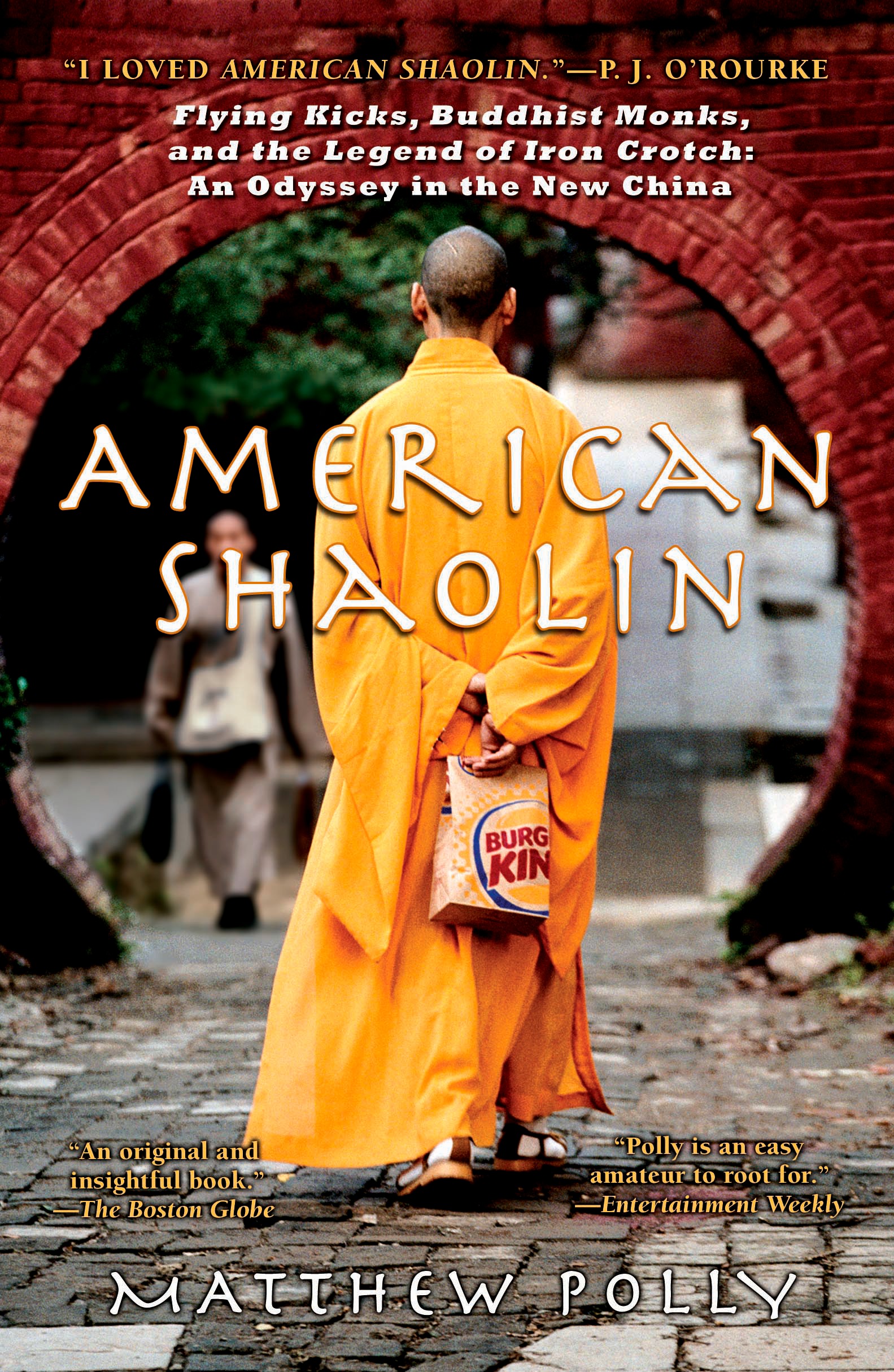book notes: American Shaolin by Matthew Polly
Almost every martial artist has some wayward fantasy or frequent daydream about dropping out of life and dropping into the Shaolin Temple, to emerge some undetermined time later as a well-tuned, philosophy spouting fighting machine. Matthew Polly did just that, leaving his junior year from college and heading to China in 1992.
My expectation of this book was that this would be a martial arts, culture clash and personal transformation story. And it was certainly all three and more. In addition, drinking games, language, sex (or at least attempts), “the sixth race”, the Chinese Triads and other topics are intertwined with this very enjoyable story.
Mr. Polly had considerable advantages for his “drop-in” to Shaolin: he’d had some Chinese language and cultural education, some Kung-Fu training and was motivated to transform himself from a 98 pound weakling. And he had a little college money.
The book is chronologically written, following Mr. Polly’s two years at Shaolin. The four sections are aptly titled Wanderer, Novice, Initiate, Apprentice, Disciple, signifying not only his increasing martial arts skills, but the slow acceptance of him by his Chinese colleagues and of himself with the Chinese culture around him. Mr. Polly’s description of the Chinese culture and his collision course with it are informative, self-effacing and humorous:
Grandfather was chewing over what had just happened in the methodical way old people do until he finally reached a common Chinese conclusion that saved me from a lot of awkward situations. Laowai were ignorant and rude, but it was not our fault. We were like the giant panda, a slow but charming endangered species tht must be forgiven and protected lest it go extinct. Stupidity was our shield. The most perilous this for a laowai was to demonstrate a deep understanding of the Chinese way, to achieve the status of Zhongguo tong (China expert). Once they knew that you actually knew better, they treater you like they treat each other, which was not so forgiving.
As a student, to learn is to be beaten, to lose, until you climb the ladder of experience. Though I would have enjoyed more martial arts description (and I’m not sure the “Iron Crotch” training qualifies!!!), and more of the spiritual qi teachings (which I assume may not have translated well from Chinese to English), Mr. Polly’s sparring descriptions were well done, especially at the end as he competes in a Chinese boxing tournament:
My initial strategy was based on my experience that fighters almost always rely on their strongest techinque first – the kick they had practiced 10,000 times. For the Korean fighter, it was his front sweep.
I stepped forward to plant my left foot and raised my right knee up high as if aiming at his head. As expected, the Korean dropped to a crouch over his left knee and swept his right foot around at my standing leg. At this moment, I lowered my knee and brought it around at waist height, aiming at his unprotected head. Mentally practicing it before the fight, I knew it was a matter of timing.
Matthew Polly also does an excellent job keeping the reader abreast of his personal evaluation of himself, with his always amusing, frequently changing personal to-do list.
An enjoyable, well paced, insightful and humorous read. Not as much martial arts as I was expecting, but quite a bit of good Chinese culture shock, well captured and written.





Hey, thanks for the review. I’m really happy you enjoyed book. And I greatly appreciated your insightful comments.
Amituofo,
Matthew Polly